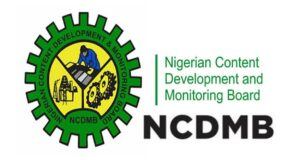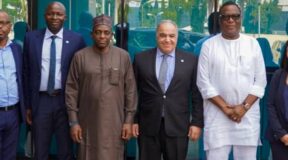At a time co-operation has become an administrative compass for public policies, culminating into Africa heads of government signing a free trade agreement- Africa Continent Free Trade Agreement, AfCFTA, Mr Esimaje Brikinn, General Manager, Policy, Government and Public Affairs of Chevron Nigeria, has explained how partnerships with NGOs, Government and stakeholders drive the oil giant’s developmental footprints across Nigeria as part of its strategic social investment.
Speaking at the September breakfast meeting organized by the Nigerian-American Chamber of Commerce, NACC, at Oriental Hotel, Lagos, with a theme “Strategic Social Investment: The Chevron Nigeria Approach, Brikinn emphasized that Chevron’s corporate decision to employ multi stakeholders approach in its social investment is imbued in the age long wisdom that clapping with one hand doesn’t yield the expected results. “You cannot clap with one hand to get the desired sound, ” he stated.
Chevron, largest domestic gas supplier to the Nigerian market, he explained, has been around for 60 years, producing “clean gas,” growing business and adding value to lives in and beyond its operating environment. He added that Chevron believes in engaging the people to achieve their needs, a development that convinces the people of their stake in Chevron’s business objectives.
“Engagement is important because we make the people feel they are part of us. Our Global Memorandum of Understanding, GMoU, is a multi stakeholder’s participatory model for community engagement and sustainable development. We spend human and financial resources to keep the model running. It is important to us. There is also Partnership Initiative for Niger Delta, PIND, an NGO. It was single handedly floated by Chevron. It is meant for strategic interventions in critical areas in Niger Delta. We have spent about $90 million through these initiatives on projects in the region since it was conceptualized,” he disclosed.
Chevron’s pays attention to the specific health, education and economic needs of the people within its operating environment and beyond.
For instance, the company has built 28 chest clinics across Nigeria to deal with tuberculosis. That effort attracted a commendation from the wife of the President, Aisha Buhari who applauded Chevron’s patriotic interventions in areas outside its operating zone.
“That speaks for our pan Nigerian spirit. We are however struggling to get things done in Yobe because of Boko Haram . We have also built 38 science laboratories across Nigeria to support the growth of science and technology,” he said.
These social engagements with NGO, government and the people are key to Chevron as it enables the management to arrive at workable solutions to problems.
Chevron exercises its citizenship by investing in partnerships to combat HIV/AIDS, malaria, tuberculosis, Zika, dengue fever and other infectious diseases in risk-prone locations.
The company also intervenes in malaria scourge through roll back malaria initiative and distribution of preventable kits. “We do much in local community where malaria is prevalent. We are active in de worming children. We took and partner with Glaxo in de worming programme across schools in 10 States ,” Brikinn stated.
Between 2013-2018, Chevron, with Pact, has successfully intervened in the prevention of transmission of HIV to unborn children. Bayelsa State government, through the Secretary to the State Government, has acknowledged this in a remark that “the ratio has reduced substantially.”
Education is key. Government is overwhelmed with infrastructural deficit and Chevron recognizes this. “We partner with government to contribute to education development like e library, scholarship. These make substantial difference in building capacity in children to be able to square up with future challenges. We even attend graduation ceremonies of our scholars.”
All this, he stated, has enabled the company to minimize conflicts so much so that indigenes in operating community feel free to identify with the model in conflict resolution.
“In our strategic social investment, we consider impact on the locals and enhancing our business. It has helped us to grow our business. It is not about throwing money around. It has helped our business to stabilize. It has also helped in substantial capacity building in the communities we operate. The model helps us to identify risk in our operations,” he submitted.
In the pursuit of an idea environment for the preservation of fauna and flora in the ecosystem, Chevron built the Lekki Conservation Centre and donated it to National conservation Centre. To keep it going, the oil giant has drawn its account to about N60 million.
The company began implementing local content policy before it was signed into law by government. “We recognize the poverty level in those communities and we are keen on how they survive. We encourage community participation in our business through award of contracts to indigenes. Our local boat suppliers are now competing with international players in vessels.”
“We do evaluation every four years to identify what is working and not working. Every stakeholder is involved. It has helped in keeping the model alive and this delivers Chevron’s ultimate social investment,”Brikinn said.
Earlier in his welcome address, Alhaji Sheriff Balogun, Deputy President of the chamber dwelt extensively on the imperatives of social investment. He submitted that given the mirage of challenges confronting the entire system, government alone cannot solve all the problems. He therefore, advocated strategic social investment by other multinationals to achieve the much expected all- round developments.






